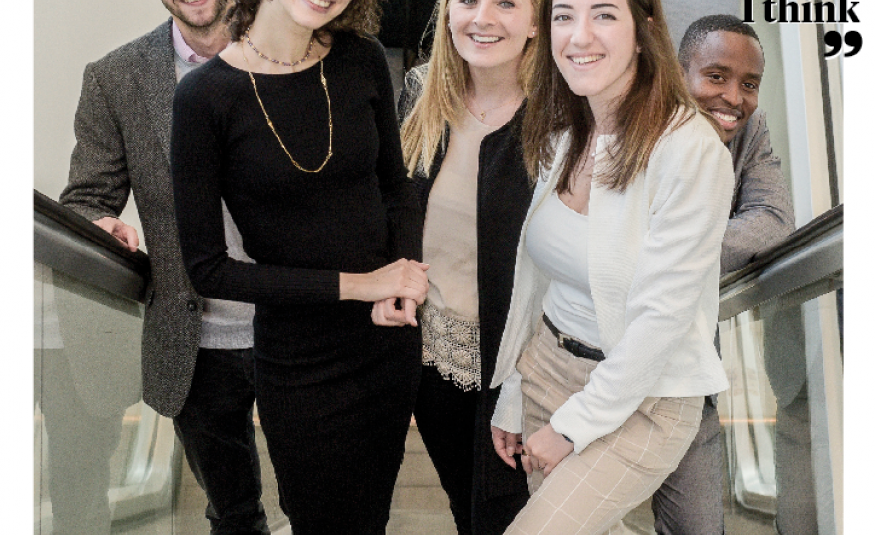EW spoke to UFI’s NGL Grant winners about seeing the industry through Millenial-eyes
What is the outlook like for Millennials in this industry?
SC: Millennials are a challenging demographic to approach because of their diversity of interest and the way they find information. This is more challenging for marketing purposes, and not only because of social media.
An organiser now really needs to be involved in a show’s sector in order to understand its participants, and to not exclude the buyers of tomorrow.
TR: It’s been fascinating to sit with this group of Millennials (the NGL Grant winners) and discover that, in one room with so many different cultures, we all agreed about the changes coming in the industry. As a different demographic emerges, the industry simply has to change.
For example, BodyPower Expo is quite a new phenomenon that appeals to Millennials’ appearance and wellbeing goals. But, with 135,000-plus followers on Instagram there’s a lot we can learn from its engagement success. Meanwhile, I think Millennials generally understand the wider impact that their actions, like travel, have on the environment.
KK: I work in business development in Munich and I think there’s much to learn at UFI events which Millennials can benefit greatly from.
UFI attendees should act as ambassadors for the knowledge they gain, and spread this to colleagues.
Millennials would also benefit from international exchange programmes to learn from other organisations and cultures.
What sort of role will technology play, and is it a threat to trade shows?
SC: Technology and trade fairs go hand in hand. It enhances markets as opposed to making them smaller and the technology we are seeing at shows - like InGo and Konduko - are well received.
NM: I agree, and I like the way Konduko works, it makes it much easier to get content. But booth technology is also improving. We’re seeing greener stands, and fabric system stands which could replace plastic panels. Exhibitors can then take their stand home with them.
How are attitudes to HR and marketing changing?
SC: In terms of HR, I prefer a flatter management structure, a one line structure.
I think that the structure we have at HKF works now, but perhaps not in the future.
Regarding marketing: In a way the trade show is replacing other mediums, and allowing you to experience an industry live.
People want to meet their trade’s heroes and network, but we as organisers must make our information more transparent.
NM: Print still matters and there are many sectors where people want something to touch and feel.
Using social media or print really depends on the context and what your audience’s preffered platforms are.
Targeted marketing on Facebook is an interesting option. It means you’re not just throwing your messaging into a digital hole. But the respectability of well-curated magazines is still important.
TR: You can get lost advertising on Facebook and Instagram. In print I think you have a distinct captive audience there.
KK: We need more employer branding strategies. Organisers often market their shows more than their brands. Better corporate branding is needed in the industry I think.
DS: HR is often disconnected from the business, but I work inter-departmentally. I want to put the HR function in closer proximity with the business, putting challenging topics of talent management at the forefront. Getting the right candidate first time can save so much time and money. Making sure they have the right knowledge and retaining and transferring that knowledge is vital too.
Another problem we need to address as an industry is that the talent we want often don’t think the industry is cool and sexy.
How are attendee attitudes to exhibitions changing?
SC: The public used to think trade fairs are just about selling booths, but now they are taken more seriously as people see much more money spent on stands. Younger people seem to be showing more interest too, often asking me which shows best promote their industry. They understand that a trade fair is a great form of advertising.
TR: There might be more people attending certain shows, but they tend to be there for less time. We need to ask why? Are these people better educated about what they want? Maybe historically they didn’t know what they were going for.
DS: Coming from Lebanon and seeing the exhibitions we hold, I think shows are very much needed and taken seriously, but people are getting more demanding about content.
KK: UFI’s event in Cologne helped me see the industry from a macro perspective. It’s an industry with different countries, sectors and markets with very different needs and very different stories. It’s huge in scale.
Event formats are changing. In Munich we’re seeing that some topics need more knowledge exchange than just a booth stand. Maybe formats that were good 20 years ago need more interactive elements.









